
Sumiyoshi Taisha: A Majestic Shinto Shrine in Osaka
Discover the enchanting Sumiyoshi Taisha in Osaka, a historic Shinto shrine renowned for its unique architecture and serene gardens.
Sumiyoshi Taisha, one of Japan's oldest shrines, is a cultural gem in Osaka, renowned for its stunning architecture and serene surroundings. Experience traditional rituals, beautiful gardens, and the tranquility of this historical site.
A brief summary to Sumiyoshi Taisha
- 2 Chome-9-89 Sumiyoshi, Osaka, 2 Chome Sumiyoshi, Sumiyoshi Ward, Osaka, 558-0045, JP
- +816-6672-0753
- Visit website
- Monday 6 am-5 pm
- Tuesday 6 am-5 pm
- Wednesday 6 am-5 pm
- Thursday 6 am-5 pm
- Friday 6 am-5 pm
- Saturday 6 am-5 pm
- Sunday 6 am-5 pm
Local tips
- Visit early in the morning to enjoy a quieter atmosphere and take stunning photographs without crowds.
- Wear comfortable shoes, as the shrine grounds are expansive and best explored on foot.
- Don’t miss the chance to try local street food vendors near the shrine, offering delicious Osaka specialties.
- Check the shrine's festival calendar to experience traditional ceremonies and cultural events during your visit.
- Bring a camera; the scenery, especially during cherry blossom season, is breathtaking.
Getting There
-
Public Transportation
From Osaka Station, take the JR Loop Line towards Tennoji. Get off at Tennoji Station. From Tennoji Station, transfer to the Nankai Line and take the Nankai Main Line towards Wakayama. Get off at Sumiyoshi Taisha Station. Exit the station and follow the signs to Sumiyoshi Taisha, which is about a 10-minute walk straight ahead.
-
Car
If you are driving from Osaka City Center, take Route 26 (Osaka Loop Road) and follow the signs towards Nankai Highway. Exit at Sumiyoshi Taisha exit. Follow the signs to Sumiyoshi Taisha Shrine. There is parking available nearby, but be mindful of local parking regulations.
-
Public Transportation
If you are near Namba Station, take the Nankai Main Line towards Hashimoto and get off at Sumiyoshi Taisha Station. Exit the station and head straight for about 10 minutes to reach the shrine.
-
Public Transportation
From Kansai International Airport, take the Nankai Airport Line to Namba Station. From Namba Station, transfer to the Nankai Main Line and take the train towards Wakayama. Get off at Sumiyoshi Taisha Station, then walk approximately 10 minutes to the shrine.
Discover more about Sumiyoshi Taisha
Iconic landmarks you can’t miss
Shin-Kizugawa Bridge
3.2 km
Experience the tranquility and beauty of Shin-Kizugawa Bridge in Osaka, a perfect blend of nature and modern architecture.
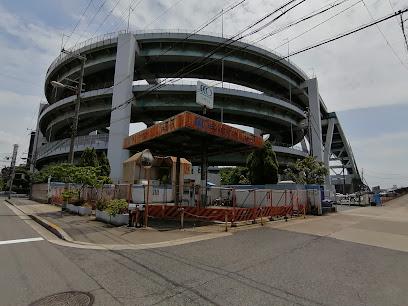
Ten Noji village monument
4.1 km
Explore the historical charm of Ten Noji Village Monument in Osaka, a serene landmark that offers a glimpse into Japan's rich cultural heritage.
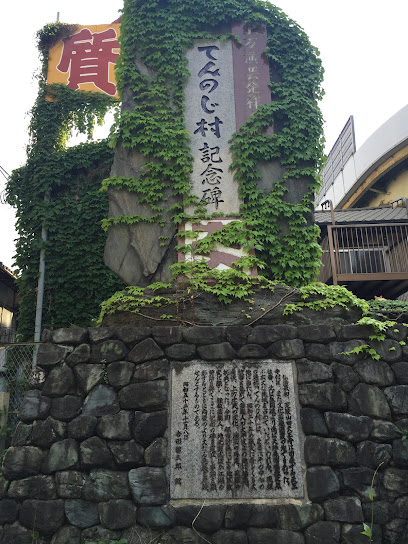
Old Sakai Lighthouse
4.5 km
Explore Old Sakai Lighthouse, a historical gem in Sakai, Osaka, where history meets stunning waterfront views, perfect for every tourist.
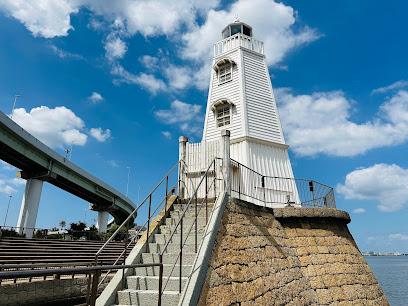
ベルリンの壁
4.6 km
Explore the Berlin Wall in Osaka, a historical landmark that embodies the struggle for freedom and unity across borders, connecting past and present.
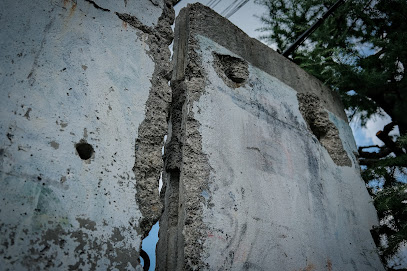
Isshin-ji Temple
4.8 km
Explore Isshin-ji Temple, a serene Buddhist haven in Osaka, where spirituality meets stunning architecture and peaceful gardens.
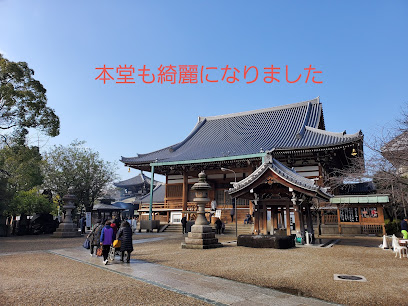
Sensai Bridge
4.9 km
Explore Sensai Bridge in Osaka, a stunning architectural marvel offering breathtaking views and a glimpse into local culture amidst the city's vibrant atmosphere.

Shitenno-ji
5.1 km
Discover the rich history and serene beauty of Shitenno-ji, one of Japan's oldest and most revered Buddhist temples in Osaka.
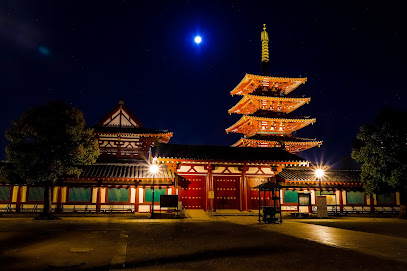
Shitennoji Honbo (Abbot's Quarters)
5.2 km
Explore the serene beauty of Shitennoji Honbo, Osaka's oldest temple, and immerse yourself in Japan's rich Buddhist heritage.
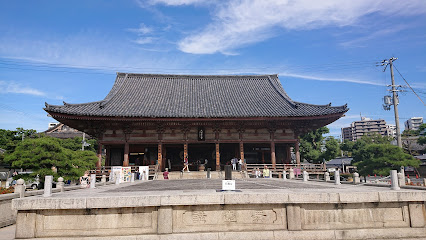
Daisen-ryo Kofun (Tomb of Emperor Nintoku)
5.4 km
Discover the monumental Daisen-ryo Kofun, the ancient burial site of Emperor Nintoku, and immerse yourself in Japan's rich historical tapestry.
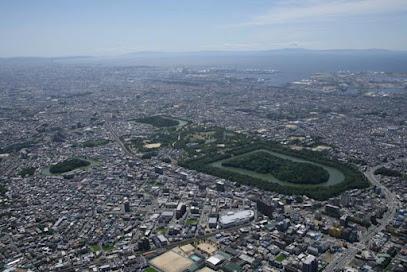
Nipponbashi Denden Town
5.5 km
Discover the pulse of pop culture at Nipponbashi Denden Town, Osaka's vibrant hub for anime, manga, and gaming enthusiasts.
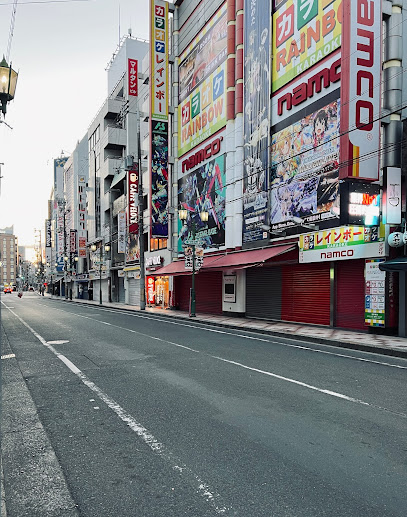
Kuchinawazaka
5.5 km
Explore the rich cultural heritage and stunning architecture of Kuchinawazaka in Osaka, a must-visit destination for history enthusiasts.
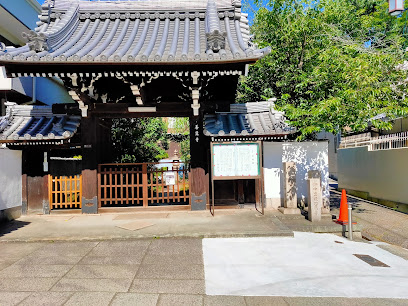
Namba Yasaka Jinjya Shrine
5.5 km
Discover the enchanting Namba Yasaka Jinjya Shrine in Osaka, where vibrant architecture meets serene spirituality, offering a unique cultural experience.
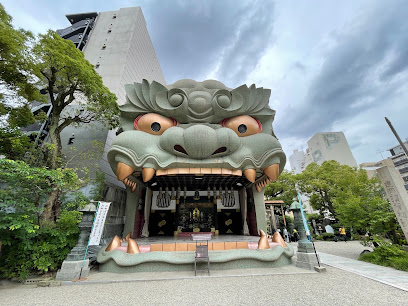
난카이난바 목적출구
5.9 km
Experience the perfect blend of shopping, dining, and nature at Namba Parks, Osaka's architectural marvel in the heart of the city.
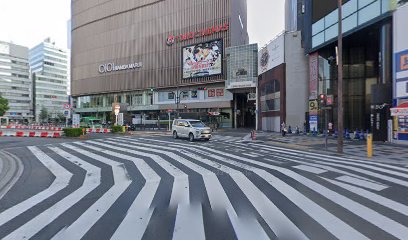
3-chōme-1-15 Namba
6.0 km
Explore the vibrant streets of Namba, Osaka, where modernity meets tradition in a bustling urban landscape filled with culture and excitement.
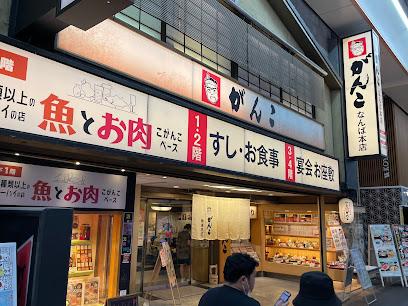
Ebisu Bashi-Suji Shopping Street
6.2 km
Discover the vibrant Ebisu Bashi-Suji Shopping Street in Osaka, where shopping, delicious street food, and local culture come together in a lively atmosphere.
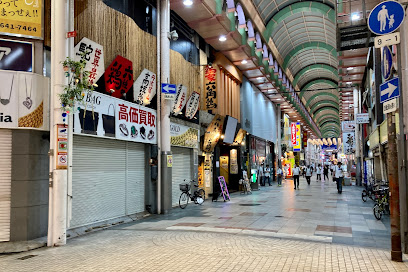
Unmissable attractions to see
Bandai Pond Park
1.2 km
Discover the serene beauty of Bandai Pond Park, Osaka's tranquil escape featuring lush landscapes, vibrant flora, and peaceful waters.
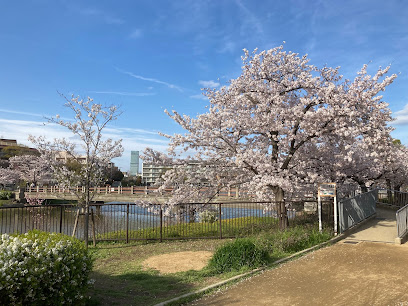
Tengachayashiseki Park
2.0 km
Discover the serene beauty and rich history of Tengachayashiseki Park in Osaka, a perfect blend of nature and culture for every traveler.
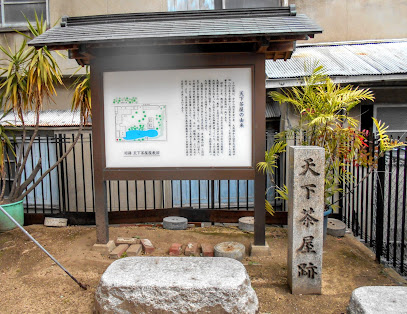
Tengachaya Park
2.3 km
Experience the serene beauty of Tengachaya Park in Osaka, a perfect urban escape with lush greenery, tranquil paths, and seasonal blossoms.
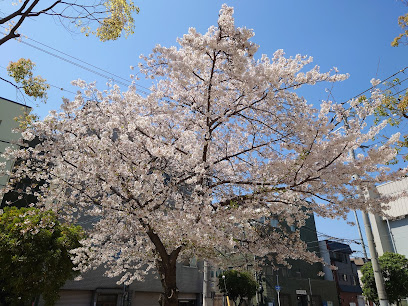
Yanmar Stadium Nagai
2.3 km
Experience the thrill of sports and the beauty of nature at Yanmar Stadium Nagai, Osaka's premier venue for athletic events and cultural festivals.
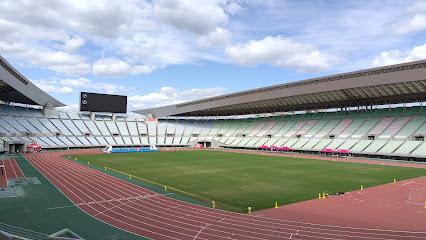
teamLab Botanical Garden Osaka
2.4 km
Explore the stunning fusion of art and nature at teamLab Botanical Garden Osaka, a unique attraction blending immersive digital experiences with beautiful flora.
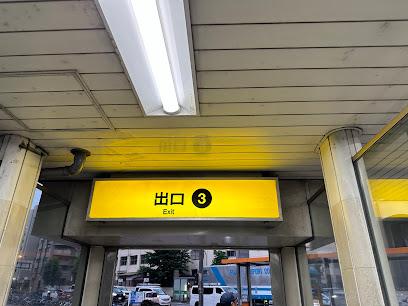
Nagai Botanical Garden
2.6 km
Explore the lush landscapes of Nagai Botanical Garden in Osaka, a serene escape filled with diverse plant species and tranquil beauty.
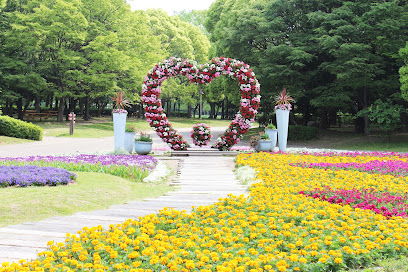
Osaka Museum of Natural History
2.7 km
Explore the rich biodiversity and fascinating history of nature at the Osaka Museum of Natural History, a captivating destination for every traveler.

Konpeito Museum Sakai
2.7 km
Explore the colorful world of konpeito at the Konpeito Museum in Sakai, where tradition meets sweetness in an immersive cultural experience.
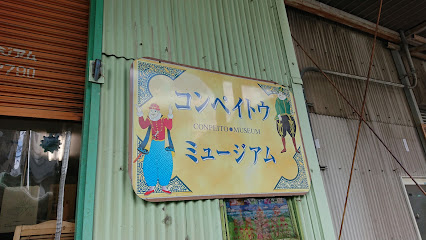
Sembonmatsu Bridge
2.8 km
Explore the enchanting Sembonmatsu Bridge in Osaka, where stunning views and rich cultural experiences await every traveler.
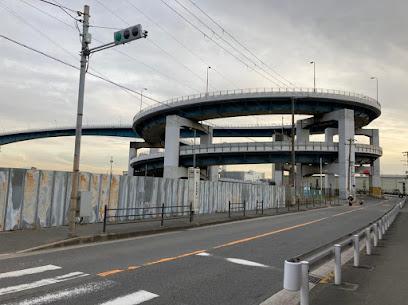
Momogaike Park
3.3 km
Discover tranquility at Momogaike Park, Osaka's serene city park, featuring beautiful gardens, ponds, and a peaceful atmosphere for relaxation.
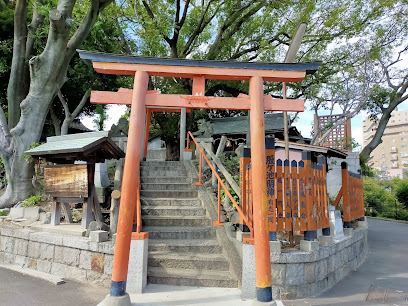
ABENO HARUKAS
4.2 km
Experience breathtaking views, shopping delights, and cultural richness at Abeno Harukas, Japan's tallest skyscraper in Osaka.
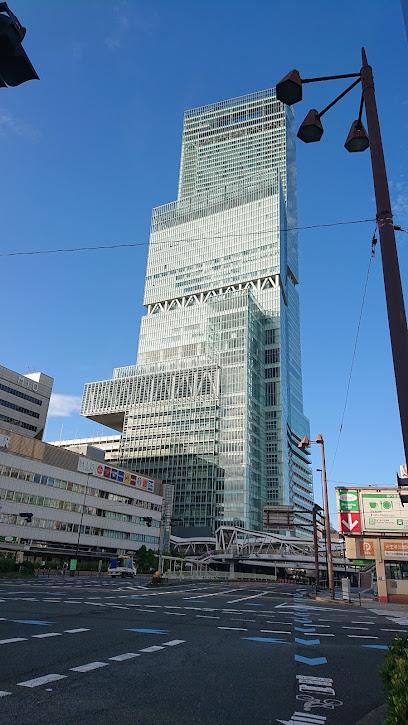
Harukas 300 Observatory
4.2 km
Discover breathtaking views of Osaka from the Harukas 300 Observatory, Japan's tallest building and an iconic tourist attraction.
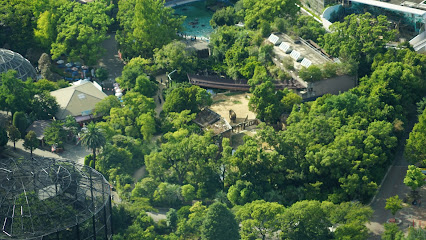
Tennoji Park Villa
4.2 km
Discover the serene beauty of Tennoji Park Villa in Osaka, a hidden gem that blends nature, culture, and history in the heart of the city.
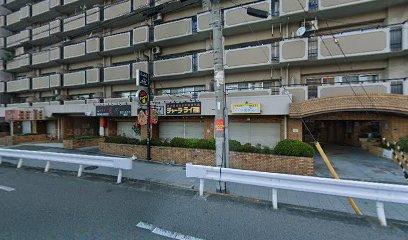
Janjan-Yokocho (Nanyo-dori Shopping Street)
4.2 km
Explore Janjan-Yokocho in Osaka, a vibrant shopping street filled with local shops, street food, and cultural experiences that capture the essence of Japan.
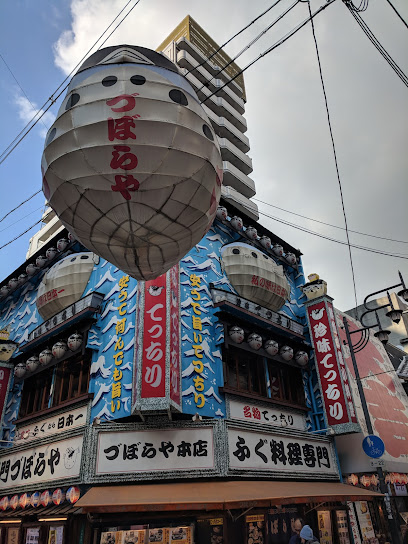
SPAWORLD HOTEL&RESORT
4.3 km
Discover relaxation and entertainment at SpaWorld Hotel & Resort, a premier onsen and spa destination in the heart of Osaka.
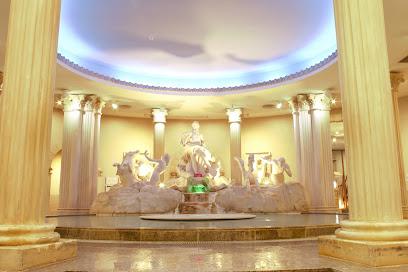
Essential places to dine
Curry Yakumido
3.7 km
Experience authentic Japanese curry at Curry Yakumido in Osaka—where flavor meets tradition in every delicious bowl.
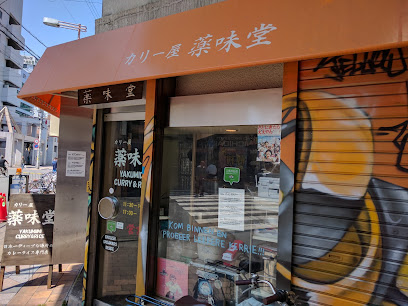
Abeno Higo Sushi
3.8 km
Experience authentic sushi craftsmanship at Abeno Higo Sushi in Osaka, where every bite tells a story of tradition and flavor.
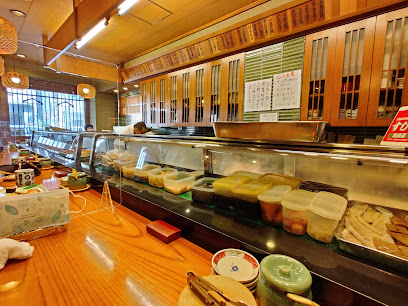
Restaurant Osaka
4.0 km
Experience the authentic flavors of Japan at Restaurant Osaka in Nishinari Ward – where every dish tells a story.
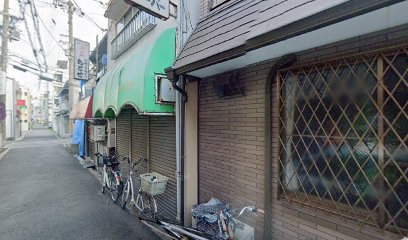
Yakiniku Hormone Bungo Tennoji
4.0 km
Discover the art of offal barbecue at Yakiniku Hormone Bungo Tennoji – where grilling meets tradition in Osaka's vibrant culinary scene.
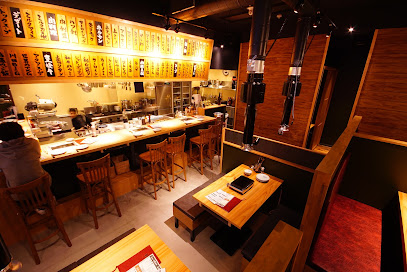
Osaka tacos
4.1 km
Experience a unique blend of Mexican flavors infused with local Japanese ingredients at Osaka Tacos - your ultimate culinary adventure in Osaka.
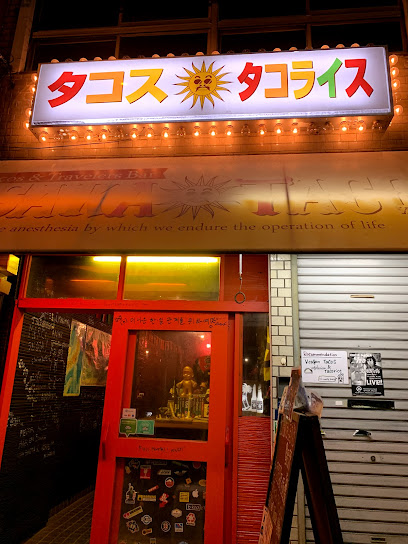
551 Horai Tennoji Station
4.2 km
Savor the authentic taste of China at 551 Horai Tennoji Station with their famous steamed buns and delightful dishes.

Teppansakaba Hishimekiyatennoji MIO Ten
4.3 km
Discover the authentic taste of Japan at Teppansakaba Hishimekiyatennoji MIO Ten, where delicious yakiniku meets vibrant izakaya culture.
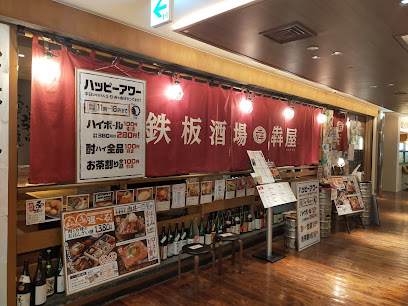
Petit Grill Maruyoshi
4.3 km
Experience the perfect fusion of Japanese flavors and Western cuisine at Petit Grill Maruyoshi in Osaka's Tennoji Ward.

Aoi Napoli in the Park
4.3 km
Discover delicious Italian cuisine at Aoi Napoli in the Park - your perfect dining escape in Osaka's scenic Tennoji Ward.
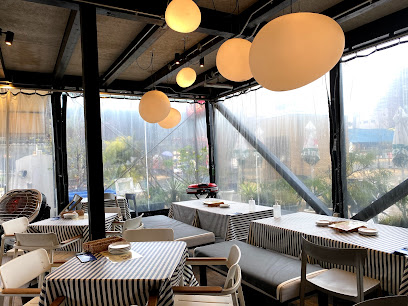
Suika KYK - Tennoji MIO
4.3 km
Savor the finest tonkatsu and shabu-shabu at Suika KYK - Tennoji MIO, where authentic Japanese flavors meet modern dining.
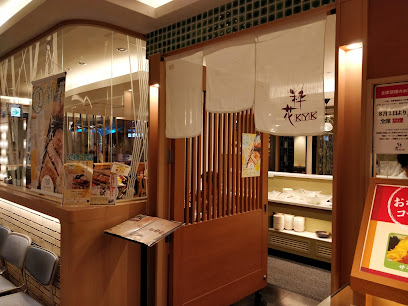
Carni Grill Tennoji
4.4 km
Experience the best of Brazilian flavors at Carni Grill Tennoji – where succulent meats meet Japanese izakaya charm.

Bikkuri Donkey Tennoji
4.4 km
Discover family-friendly dining at Bikkuri Donkey Tennoji in Osaka – where delicious flavors meet a welcoming atmosphere.
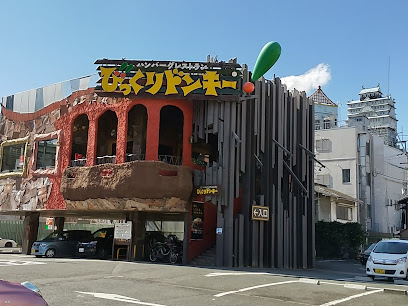
Abeton
4.4 km
Experience authentic okonomiyaki at Abeton in Osaka - where tradition meets taste in every bite.
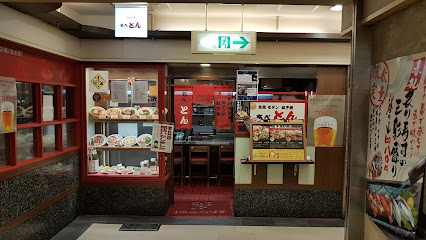
Nanoan
4.5 km
Experience authentic Japanese cuisine at Nanoan in Osaka - where tradition meets flavor in every dish.
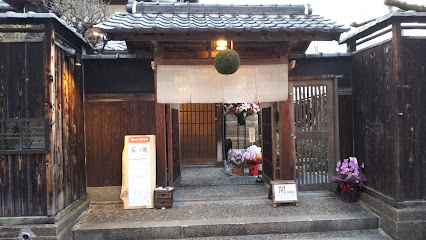
Hana Izakaya
4.7 km
Experience authentic Japanese izakaya culture at Hana Izakaya in Osaka - where delicious food meets vibrant atmosphere.
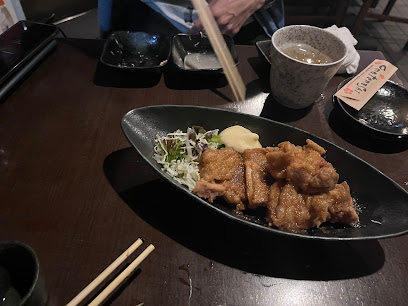
Markets, malls and hidden boutiques
Kawachi at Hoop
4.1 km
Discover a vibrant art supply store in Osaka, offering quality materials, picture framing, and stationery for all your creative needs.

ekimo天王寺
4.2 km
Experience shopping, dining, and entertainment all in one place at ekimo Tennoji, Osaka's vibrant shopping mall.

Tennoji MIO LOFT
4.3 km
Explore Tennoji MIO LOFT, a vibrant shopping haven in Osaka offering a unique selection of cosmetics, home goods, and more for every traveler.

Tennoji MIO
4.3 km
Discover Tennoji MIO, a vibrant shopping mall in Osaka with diverse shops, eateries, and a modern atmosphere for an unforgettable experience.

PLAZA
4.3 km
Explore PLAZA, Osaka's premier home goods store, offering a unique blend of stylish decor, practical essentials, and delightful souvenirs.

shop in
4.3 km
Discover the ultimate cosmetics shopping experience in Osaka at Tennoji MIO, where beauty meets variety in a vibrant setting.

Flying Tiger Copenhagen 天王寺ミオ プラザ館ストア
4.3 km
Discover a treasure trove of quirky gifts, home goods, and toys at Flying Tiger Copenhagen in Tennoji, Osaka - where fun shopping awaits!

Tennoji MIO Plaza Building
4.3 km
Discover the vibrant shopping and dining scene at Tennoji MIO Plaza Building in Osaka, where modernity meets tradition in a stylish environment.
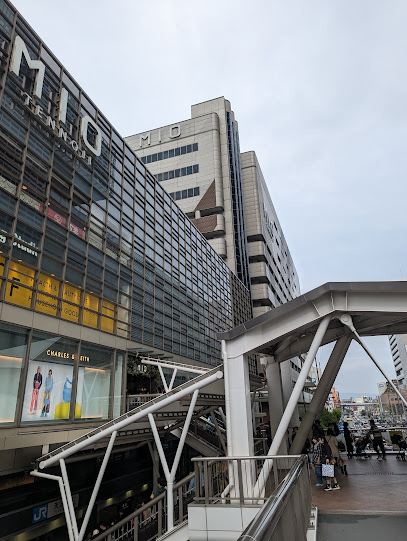
エピソード 天王寺店
4.3 km
Discover contemporary fashion at Episode Tennoji - your ultimate shopping destination in Osaka's bustling JR Tennoji Station.

it300(イットサンビャク)天王寺ミオshop
4.3 km
Discover unique souvenirs and local gems at it300 Tennoji Mio Shop, a must-visit general store in the heart of Osaka's vibrant Tennoji district.

난바샵
4.5 km
Explore the unique offerings of Namba Shop in Osaka, where tech enthusiasts find innovative gadgets and travel accessories.

スアンショップ ベトニャット DAIKOUKUCHO
4.6 km
Explore the vibrant local culture at スアンショップ ベトニャット DAIKOUKUCHO, Osaka's treasure trove of unique crafts and delicious treats.
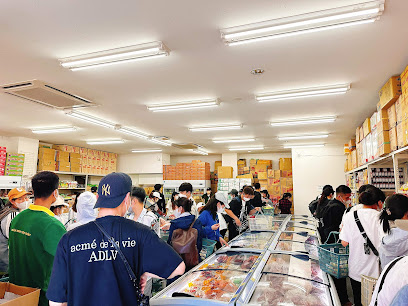
Animate Osaka Nipponbashi
5.4 km
Explore the vibrant world of anime and manga at Animate Osaka Nipponbashi, a treasure trove for fans and collectors in Osaka.

Japan Culture & Character Shop Guf
5.5 km
Experience the heart of Japanese culture at Guf, Osaka's premier hobby and souvenir store, offering a diverse range of unique collectibles and gifts.

Tajima Coffee
5.7 km
Experience the heart of Osaka at Tajima Coffee, where exceptional brews meet a cozy atmosphere, perfect for relaxation and connection.

Essential bars & hidden hideouts
Three Monkeys Cafe Tennoji
4.5 km
Experience the best of Japanese barbecue at Three Monkeys Cafe Tennoji, a lively spot for delicious grilled dishes and refreshing drinks.
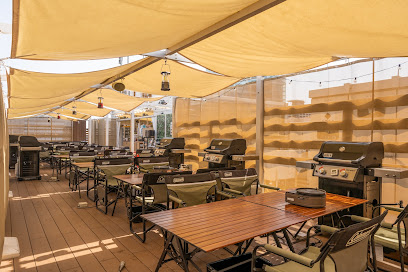
ティンズホール
4.5 km
Experience the lively atmosphere and local charm at Tins Hall, a must-visit bar in Osaka's vibrant Tennoji Ward.
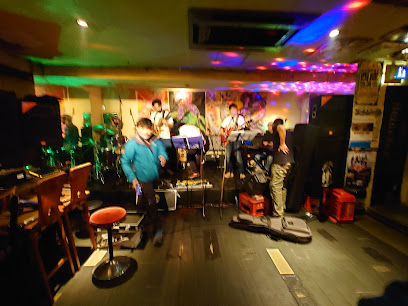
Bar Nocosarejima
4.6 km
Experience the art of mixology at Bar Nocosarejima, a premier cocktail bar in the vibrant Naniwa Ward of Osaka, where unique flavors meet a cozy atmosphere.
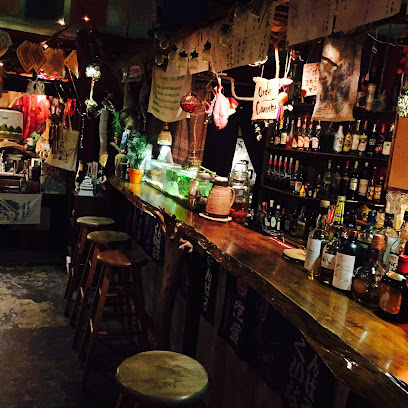
CelticBarGALWAY
5.0 km
Discover the vibrant Celtic Bar Galway in Osaka, blending Irish charm and Japanese hospitality with delightful cocktails and live music.
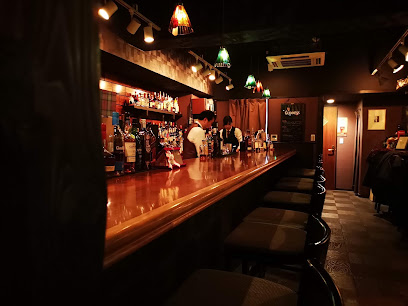
LIVEBar Refuge
5.7 km
Discover the vibrant nightlife of Osaka at LIVEBar Refuge, where local culture meets modern vibes in a lively bar setting.
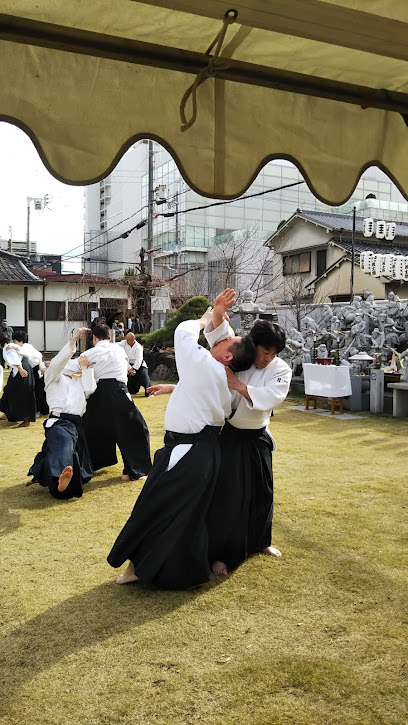
The Hearth Board Game Bar and Café
5.8 km
Discover the ultimate board game experience at The Hearth Board Game Bar and Café in Osaka, where great games and delicious food come together.
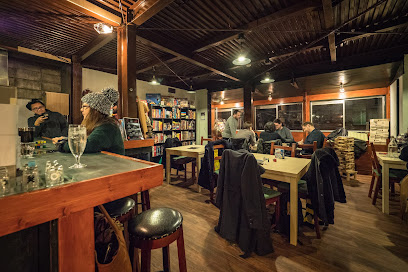
Live Bar OTO
6.0 km
Discover the vibrant nightlife of Osaka at Live Bar OTO, where exceptional drinks and lively atmosphere await every visitor.

Little Long Beach
6.0 km
Discover Little Long Beach, a vibrant bar in Osaka where American cuisine meets exquisite cocktails and darting fun for a memorable night out.

Bar Around the World Osaka
6.0 km
Discover innovative cocktails and a vibrant atmosphere at Bar Around the World in Osaka's lively Namba district, a must-visit for nightlife enthusiasts.

Cafe & Bar 845
6.1 km
Experience the vibrant jazz scene at Cafe & Bar 845 in Osaka, where live music and a cozy atmosphere create unforgettable nights.

Bar Sou
6.2 km
Discover the art of cocktail-making at Bar Sou, Osaka's premier cocktail bar in the vibrant Namba district, offering an unforgettable nightlife experience.

Kawachi Karumen
6.2 km
Experience the authentic izakaya culture at Kawachi Karumen, where delightful dishes and local drinks await in the heart of Osaka.
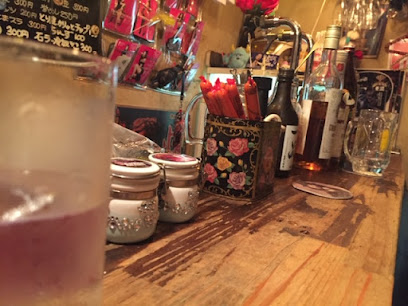
Main Bar Spirits
6.2 km
Discover the energetic nightlife of Osaka at Main Bar Spirits, where expertly crafted cocktails and a vibrant atmosphere await you.

bar moon walk Nanbaten
6.2 km
Discover the vibrant nightlife of Osaka at Bar Moon Walk Namba, where friendly vibes and great drinks await in the heart of the city.

Bar Core
6.3 km
Discover Bar Core, a vibrant bar in Dotonbori, Osaka, where unique drinks and a lively atmosphere await every traveler.
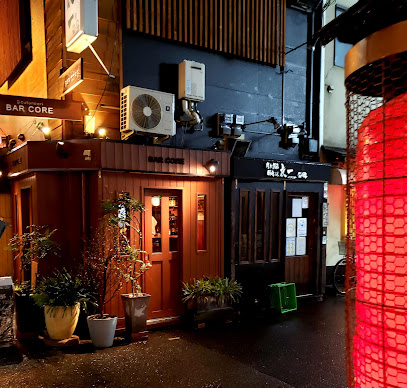
Nightclubs & after hour spots
Coamig
5.7 km
Experience the vibrant nightlife of Osaka at Coamig, where electrifying music and a lively atmosphere await every night.
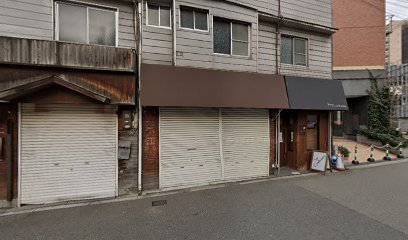
Miss Osaka
6.0 km
Unleash your spirit at Miss Osaka, the ultimate night club experience in the heart of the city's vibrant nightlife.

ジヤックスイン
6.2 km
Dive into Osaka's energetic nightlife at ジヤックスイン, where music, dance, and unforgettable experiences await after dark.

oasis
6.3 km
Discover the vibrant nightlife of Osaka at Oasis, where electrifying beats and an energetic crowd create unforgettable experiences.
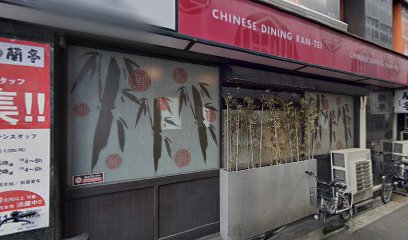
Club Shrike
6.4 km
Discover the electrifying nightlife of Osaka at Club Shrike, where music and culture blend for an unforgettable evening.

GALA RESORT OSAKA Namba Nightclub
6.4 km
Discover the vibrant nightlife at GALA RESORT OSAKA, where electrifying music and unforgettable experiences await in the heart of Osaka.
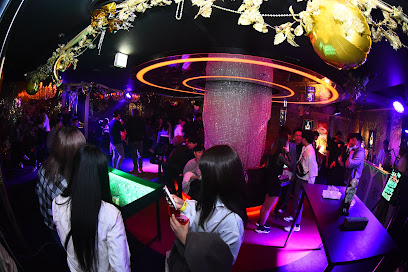
Pure Osaka
6.4 km
Discover the heart of Osaka's nightlife at Pure Osaka, where live music and vibrant energy create unforgettable experiences.

Club Lounge, Sheraton Miyako Hotel Osaka
6.4 km
Discover the luxurious Club Lounge at Sheraton Miyako Hotel Osaka, where stunning views and exceptional service create a perfect retreat.

Club S
6.5 km
Discover the vibrant nightlife of Osaka at Club S, where electrifying music and a lively atmosphere await you.

GHOST Osaka
6.5 km
Discover the heart of Osaka's nightlife at GHOST Osaka, where the music is loud, the crowd is lively, and memories are made.

Bonita
6.6 km
Experience the vibrant nightlife of Osaka at Bonita, a premier club offering unforgettable music, dance, and karaoke in the heart of the city.

Joule
6.6 km
Discover the electrifying nightlife at Joule, Osaka's premier nightclub offering an exceptional sound system and stunning light displays.

Ammona
6.6 km
Discover the electrifying nightlife at Ammona, Osaka's top disco club, where music and dancing come alive in a stylish setting.

Club Life Osaka
6.6 km
Discover the electrifying atmosphere of Club Life Osaka, a premier night club where music, drinks, and dancing come together for an unforgettable night out.
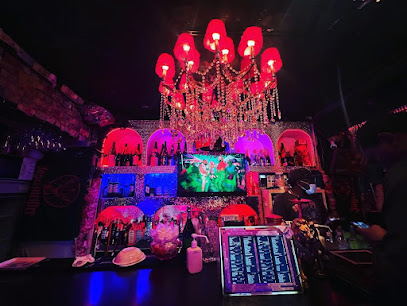
Seven House
6.7 km
Discover the essence of Osaka's nightlife at Seven House, a vibrant bar and izakaya offering karaoke, modern cuisine, and endless fun.




